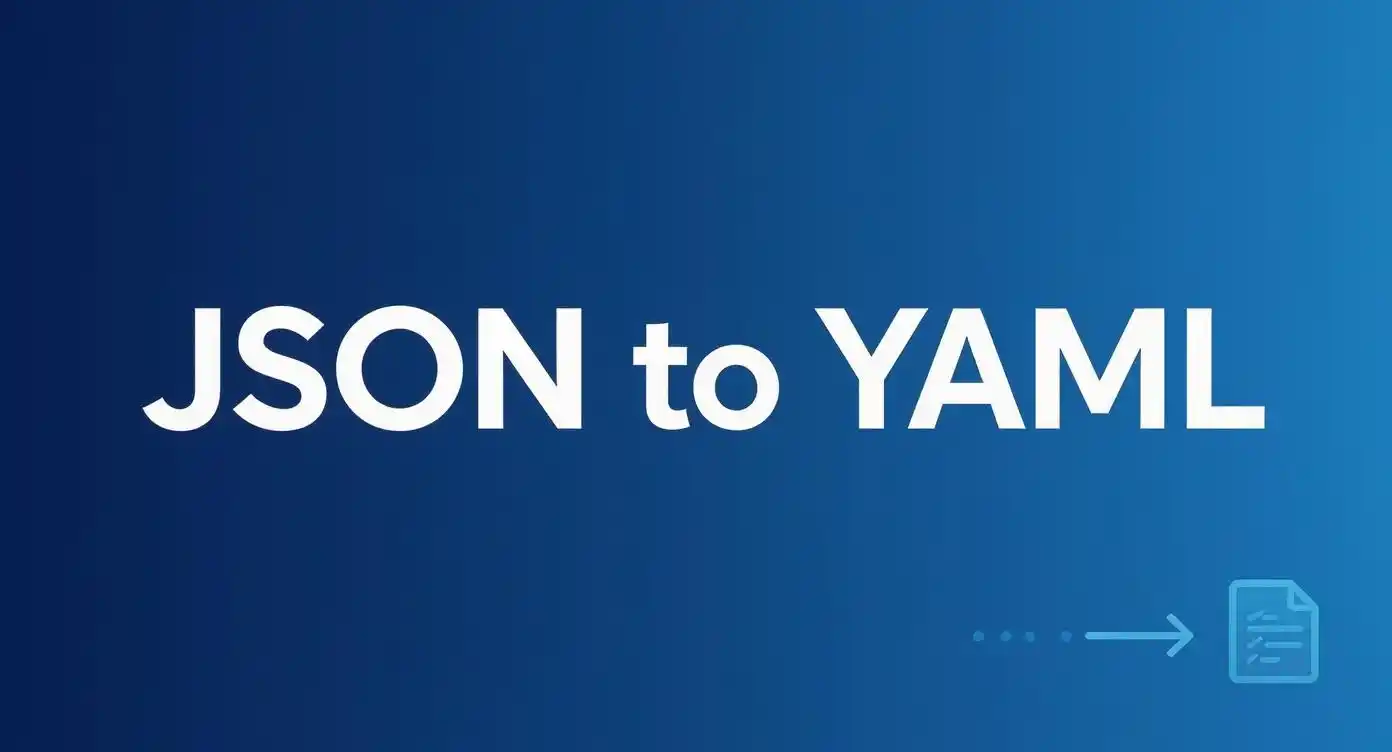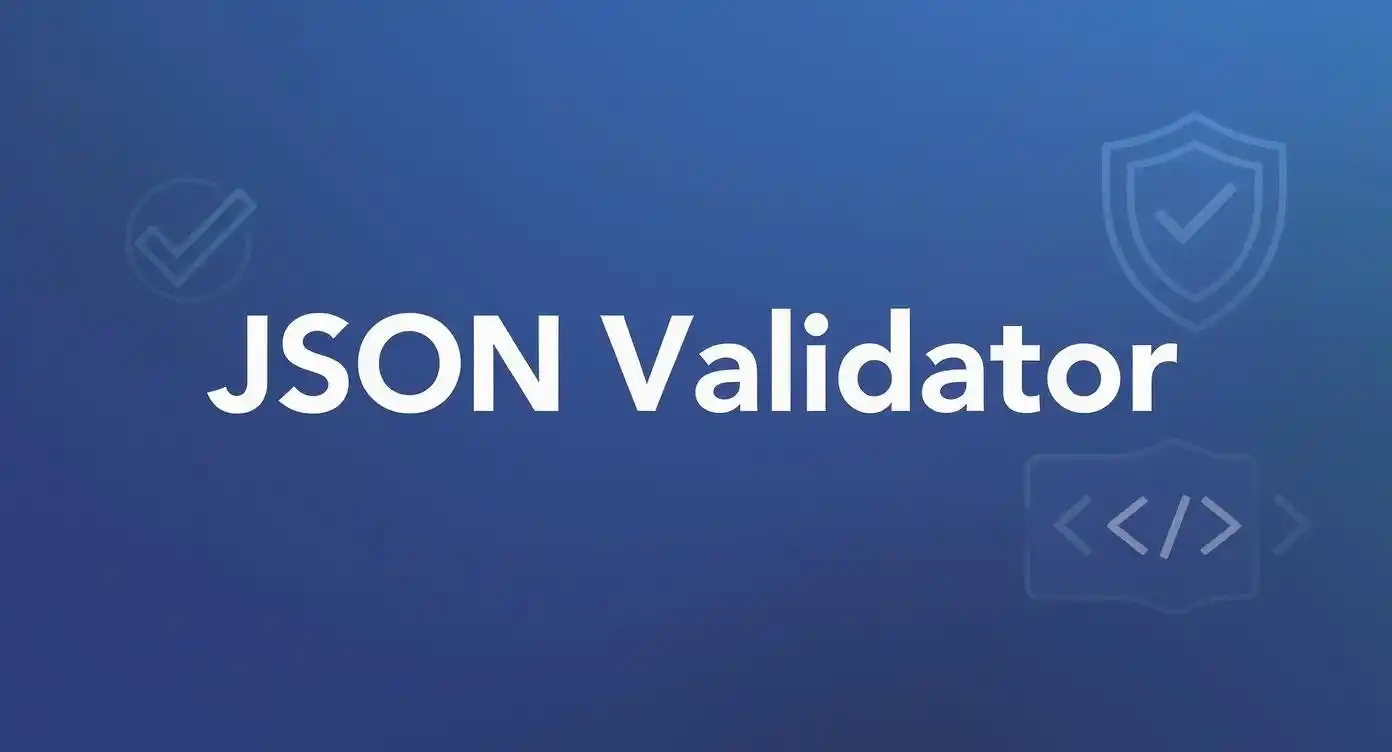CSV to JSON Converter
Transform your CSV data into JSON format with advanced mapping options, intelligent data type detection, and customizable output settings
CSV Input
CSV Options
JSON Output
JSON Options
Enter CSV data to see JSON output
Advanced Options
Customize delimiters, quotes, and data type detection for perfect conversion results
Smart Detection
Automatically detect and preserve data types including numbers, booleans, and null values
Export Options
Download results as JSON files or copy to clipboard with customizable formatting
Understanding CSV to JSON Conversion: A Comprehensive Guide
CSV to JSON conversion is a fundamental data transformation process that converts tabular data from Comma-Separated Values format into JavaScript Object Notation. This conversion is essential for modern web applications, API integrations, and data analysis workflows. The CSV to JSON converter transforms structured data while preserving data types, relationships, and formatting options.
When working with CSV to JSON conversion, developers and data analysts need reliable tools that handle various CSV formats, delimiters, and data types. Our CSV to JSON converter provides advanced features including custom delimiter support, automatic data type detection, and flexible output formatting options. The tool processes CSV files efficiently while maintaining data integrity throughout the conversion process.
The CSV to JSON transformation process involves parsing CSV rows and columns, mapping field names to JSON keys, and converting data values to appropriate JSON data types. This converter supports complex CSV structures, handles quoted fields, and provides options for nested JSON output formats. Understanding these conversion principles helps users leverage the full potential of CSV to JSON transformation for their specific use cases.
Key Features of Our Advanced CSV to JSON Converter
Our CSV to JSON converter offers comprehensive features designed for professional data transformation needs. The tool supports multiple delimiter options including comma, semicolon, tab, pipe, and custom delimiters. Users can specify quote characters, handle header rows, and configure data type detection settings for optimal conversion results.
The converter includes intelligent data type detection that automatically identifies numbers, booleans, null values, and dates within CSV data. This CSV to JSON feature ensures that converted JSON maintains proper data types rather than treating all values as strings. Users can customize type detection settings and preserve specific data formats based on their requirements.
Advanced CSV to JSON Features
Experience powerful conversion capabilities with customizable options, real-time preview, and professional-grade data processing for all your CSV to JSON conversion needs.
Output formatting options include array of objects, single object, and nested structure formats. The CSV to JSON converter supports various indentation settings, minified output, and custom JSON formatting. These features make the tool suitable for different use cases from API data preparation to database imports and web application integration.
CSV to JSON Conversion Process and Best Practices
The CSV to JSON conversion process begins with parsing the CSV structure to identify columns, rows, and data patterns. The converter analyzes delimiter patterns, quote usage, and field structure to create accurate JSON representations. Understanding this process helps users prepare CSV data for optimal conversion results.
Best practices for CSV to JSON conversion include ensuring consistent delimiter usage, properly quoting fields containing special characters, and maintaining clean header row formatting. The converter handles common CSV formatting issues automatically, but following these practices improves conversion accuracy and reduces processing time.
Data validation is crucial during CSV to JSON conversion to ensure accuracy and consistency. Our converter performs comprehensive validation checks, identifies potential issues, and provides detailed error reporting. This validation process helps users identify and resolve data quality issues before completing the conversion.
Advanced CSV to JSON Mapping and Configuration Options
The CSV to JSON converter provides advanced mapping capabilities that allow users to customize how CSV columns are converted to JSON properties. Users can specify custom field names, configure data type mappings, and define transformation rules for specific columns. These mapping options enable precise control over the conversion process.
Configuration options include handling of empty values, null representation, and special character encoding. The CSV to JSON tool supports various encoding formats and provides options for preserving or converting special characters. These configuration settings ensure that converted JSON maintains data integrity and compatibility with target systems.
Advanced users can leverage the converter's support for nested JSON structures, where CSV columns can be mapped to nested object properties. This CSV to JSON feature is particularly useful for creating hierarchical data structures from flat CSV files, enabling complex data modeling scenarios.
Data Type Detection and Preservation in CSV to JSON Conversion
Automatic data type detection is a critical feature of professional CSV to JSON conversion tools. The converter analyzes CSV values to identify numeric data, boolean values, dates, and null entries. This intelligent detection ensures that JSON output maintains appropriate data types rather than converting everything to strings.
The CSV to JSON converter uses sophisticated algorithms to detect data patterns and apply appropriate type conversions. Number detection handles integers, floats, and scientific notation, while boolean detection recognizes various true/false representations. Date detection supports multiple date formats and provides options for custom date parsing.
Users can customize data type detection settings to match their specific requirements. The converter allows disabling automatic type detection for certain columns, specifying custom type conversion rules, and preserving original string values when needed. These options provide flexibility for handling diverse CSV to JSON conversion scenarios.
CSV to JSON Output Formats and Customization
The CSV to JSON converter supports multiple output formats to accommodate different use cases and application requirements. The array of objects format creates a JSON array where each CSV row becomes a JSON object with column headers as keys. This format is ideal for database imports and API data structures.
Single object format consolidates all CSV data into a single JSON object with nested structures. This CSV to JSON output option is useful for configuration files, data exports, and hierarchical data representation. The converter provides options for customizing object structure and key naming conventions.
Nested structure format allows creating complex JSON hierarchies from flat CSV data. Users can specify how columns should be nested, create parent-child relationships, and define grouping criteria. This advanced CSV to JSON feature enables sophisticated data modeling and organization.
Performance Optimization and Large File Handling
Our CSV to JSON converter is optimized for processing large CSV files efficiently while maintaining system performance. The tool uses streaming processing techniques to handle large datasets without consuming excessive memory. This optimization ensures reliable conversion performance even with multi-megabyte CSV files.
Performance optimization includes intelligent parsing algorithms that minimize processing overhead and maximize conversion speed. The CSV to JSON converter implements efficient data structures and processing pipelines to deliver fast results. Users can monitor processing statistics and conversion progress for large file operations.
Memory management features ensure stable operation during CSV to JSON conversion of large datasets. The converter implements smart buffering and garbage collection strategies to maintain optimal memory usage. These optimizations enable reliable processing of enterprise-scale CSV files without performance degradation.
Error Handling and Validation in CSV to JSON Conversion
Comprehensive error handling is essential for reliable CSV to JSON conversion, especially when dealing with inconsistent or malformed CSV data. Our converter implements robust error detection and reporting mechanisms that identify common CSV formatting issues, delimiter problems, and data inconsistencies.
The CSV to JSON validation process includes checks for proper quote usage, consistent column counts, and valid data formats. When errors are detected, the converter provides detailed diagnostic information including line numbers, column positions, and specific error descriptions. This detailed error reporting helps users quickly identify and resolve data quality issues.
Advanced validation features include data integrity checks, duplicate detection, and schema validation. The converter can verify that converted JSON meets specific structural requirements and data type constraints. These validation capabilities ensure that CSV to JSON conversion results are accurate and suitable for downstream processing.
Integration and API Usage for CSV to JSON Conversion
Modern applications often require programmatic access to CSV to JSON conversion capabilities for automated data processing workflows. Understanding integration patterns and API usage scenarios helps developers implement efficient data transformation pipelines. The converter supports various integration approaches including direct API calls, batch processing, and real-time conversion services.
RESTful API integration enables applications to submit CSV data and receive JSON responses programmatically. This CSV to JSON integration pattern is common in data processing pipelines, ETL workflows, and web applications. The API supports various authentication methods, rate limiting, and error handling mechanisms for reliable operation.
Batch processing capabilities allow processing multiple CSV files simultaneously and generating corresponding JSON outputs. This feature is particularly valuable for data migration projects, bulk data transformation tasks, and automated reporting systems. The CSV to JSON batch processing includes progress tracking, error reporting, and result aggregation features.
Common Use Cases and Applications for CSV to JSON Conversion
CSV to JSON conversion serves numerous practical applications across different industries and use cases. Web developers frequently use CSV to JSON conversion for importing data into web applications, creating dynamic content, and integrating with APIs that require JSON format. The conversion enables seamless data flow between spreadsheet applications and modern web technologies.
Data analysts and scientists use CSV to JSON conversion for preparing datasets for analysis tools, machine learning frameworks, and visualization libraries. Many modern data processing tools prefer JSON format for its flexibility and structure. The CSV to JSON conversion enables data scientists to leverage Excel or CSV-based datasets in advanced analytics workflows.
Database administrators and developers use CSV to JSON conversion for data migration, backup processing, and integration scenarios. NoSQL databases often prefer JSON format for document storage, making CSV to JSON conversion essential for migrating relational data to document databases. The conversion maintains data relationships and enables efficient database operations.






